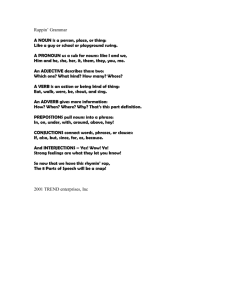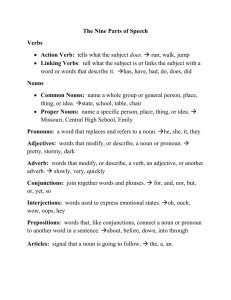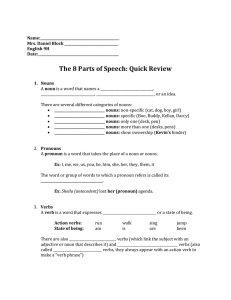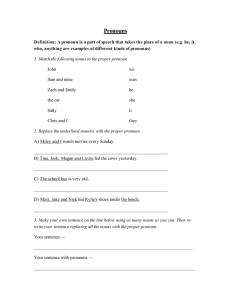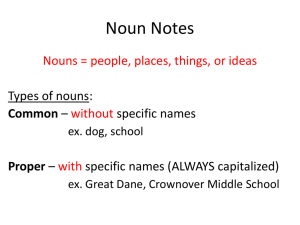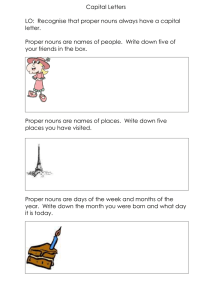The 8 Parts of Speech: Quick Review
advertisement
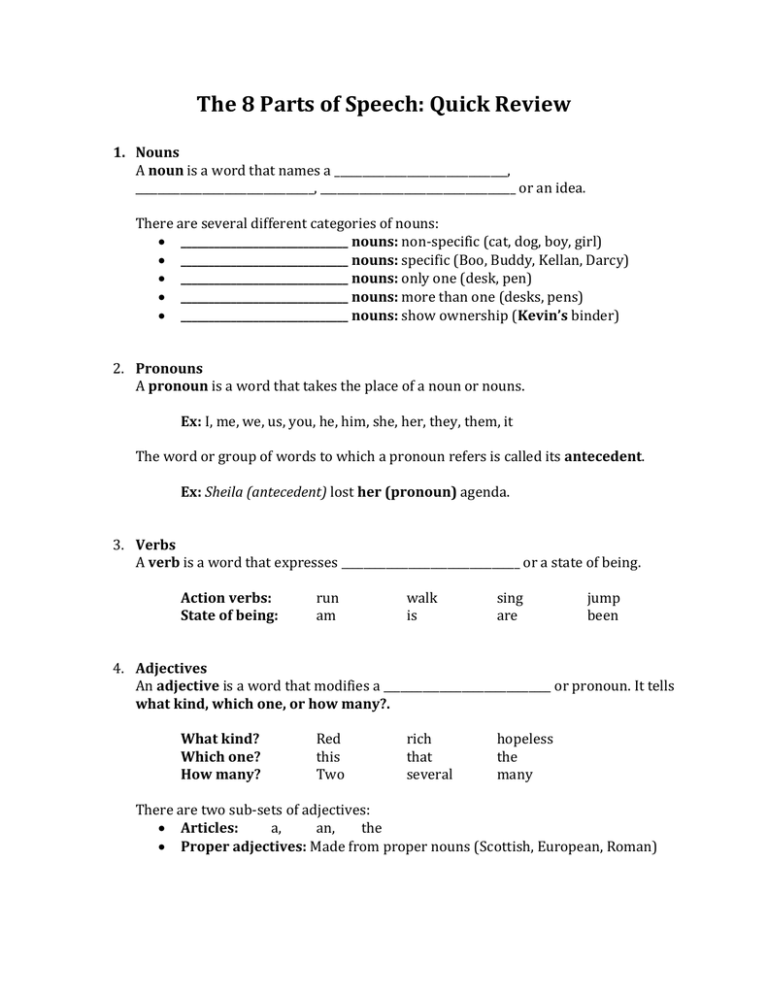
The 8 Parts of Speech: Quick Review 1. Nouns A noun is a word that names a _______________________________, ________________________________, ___________________________________ or an idea. There are several different categories of nouns: ______________________________ nouns: non-specific (cat, dog, boy, girl) ______________________________ nouns: specific (Boo, Buddy, Kellan, Darcy) ______________________________ nouns: only one (desk, pen) ______________________________ nouns: more than one (desks, pens) ______________________________ nouns: show ownership (Kevin’s binder) 2. Pronouns A pronoun is a word that takes the place of a noun or nouns. Ex: I, me, we, us, you, he, him, she, her, they, them, it The word or group of words to which a pronoun refers is called its antecedent. Ex: Sheila (antecedent) lost her (pronoun) agenda. 3. Verbs A verb is a word that expresses ________________________________ or a state of being. Action verbs: State of being: run am walk is sing are jump been 4. Adjectives An adjective is a word that modifies a ______________________________ or pronoun. It tells what kind, which one, or how many?. What kind? Which one? How many? Red this Two rich that several hopeless the many There are two sub-sets of adjectives: Articles: a, an, the Proper adjectives: Made from proper nouns (Scottish, European, Roman) 5. Adverbs An adverb modifies a ___________________________, an ______________________________, or another adverb by making its meaning more specific. Adverbs modify by answering the questions “when?”, “where”, “How?”, and “to what degree?”. Most (but not all) adverbs end in _________________________________. Ex: quickly often quite carefully 6. Prepositions A preposition is a word that shows the relationship of a noun or pronoun to some other word in the sentence. Commonly Used Prepositions: About, above, across, after, against, along, amid, among, around, at, before, behind, below, beneath, beside, besides, between, beyond, by down, during, for, from, in, inside, into, near, of, off, on, onto, opposite, out, outside, over, past, through, throughout, to, toward, under, underneath, until, unto, up, upon, with, within, without 7. Conjunctions A conjunction is a word that joins single words or groups of words. A coordinating conjunction joins words or groups of words that are equally important in a sentence. Ex: and for but yet or so nor 8. Interjections An interjection is a word or phrase that expresses emotion. It has not grammatical connection to the other words in the sentence. Ex: Ouch Wow Oh Yikes Interjections can be mild (set off with commas), or strong (set off with exclamation mark) Ex: Ouch! That really hurt. (Strong interjection) Oh, I didn’t know she was coming out tonight. (Mild interjection)
